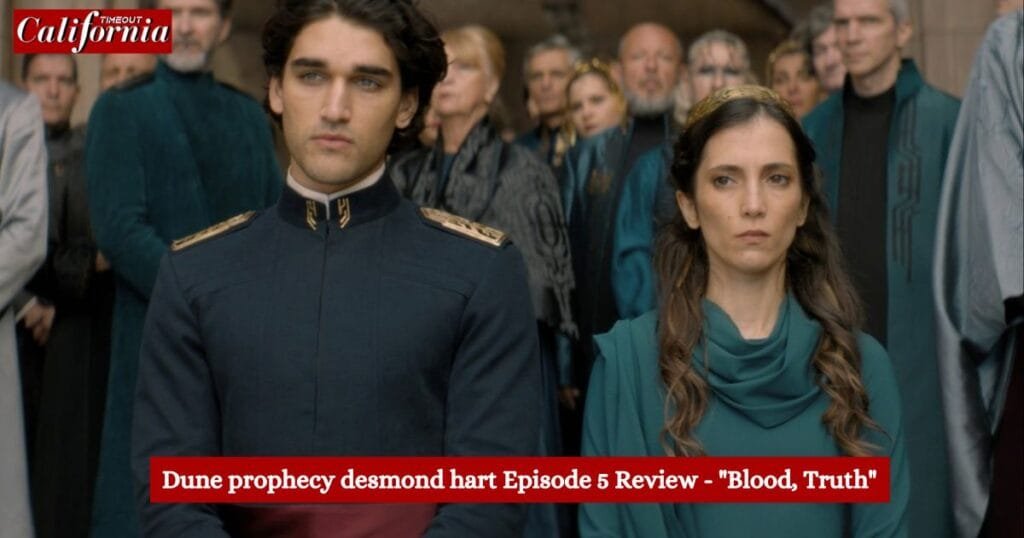Dune: Prophecy Penultimate Episode Delivers Action, Humor, and Questions
The latest episode of Dune: Prophecy, titled “In Blood, Truth,” answers some key questions about the series’ central mystery while leaving others unresolved. As the series prepares for its finale, this episode combines character drama with pulpy action, resulting in an unexpectedly entertaining chapter.
Revealing Desmond Hart’s Parentage
In “In Blood, Truth,” viewers learn that Desmond Hart is the son of Tula Harkonnen and Orry Atreides, adding a layer of intrigue to his character. Additionally, it’s revealed that he is using a variant of the Omnius plague to burn his enemies.
While the Omnius name-drop feels like a forced reference to Dune lore, Desmond’s parentage calls back to the emotional high points of “Sisterhood Above All.”
Olivia Williams delivers a standout performance as Tula, embodying her character’s sorrow and guilt. Director Anna Foerster takes the time to explore Tula’s emotional breakdown, emphasizing humanity over plot mechanics. Her silent scream conveys a depth of feeling rarely seen in this series.

Embracing Pulpy, Silly Fun
Unlike previous episodes that attempted—and failed—to achieve Shakespearean drama or Game of Thrones-style intrigue, “In Blood, Truth” shifts gears toward action and humor. Desmond Hart (Travis Fimmel) is promoted to Bashar over Javicco’s army, leading a scourge to root out insurgents.
Fimmel’s eccentric portrayal adds an entertaining energy, particularly in his interactions with Harrow Harkonnen, played with comic unease by Edward Davis.
Even Valya (Emily Watson) injects humor into her scenes. Normally a one-dimensional character, Valya adopts a wry tone when plotting with Mother Francesca (Tabu) or belittling her nephew Harrow.
Similarly, Chloe Lea shines as Lila, embodying the wisdom of Mother Raquella in a teenage body with humor and grace.
Addressing Fan Expectations
While the episode’s focus on action and humor might disappoint fans seeking the philosophical depth of Frank Herbert’s novels, it works within the show’s limited scope. The political rhetoric and power plays, particularly Javicco’s speeches on strength and safety, faintly echo Herbert’s themes of corruption and human progress. However, the show ultimately prioritizes spectacle over substance.
The Final Question: Who Cares?
The reveal of Desmond’s powers and parentage raises one lingering question: “Who cares?” The episode does little to explore these concepts beyond surface-level parallels between Desmond and Constantine, both abandoned by their mothers.
If the finale fails to deliver the emotional or thematic depth fans hope for, perhaps it will at least continue the entertaining momentum of “In Blood, Truth.” At its best, Dune: Prophecy embraces its identity as a fun, action-packed series rather than pretending to be something it’s not.
Read also:-
- Anastasiia Smelova: The Beauty Queen on a Mission to Uplift, and Unite Women Worldwide
- HELL’ YA, a song of ELUSIVE THUGS serves as a perfect example of Music with Meaning
- Egyptian-American filmmaker Peter Takla is set to Release his new film, “40 Days,” in theatres on May 30
- Autumn Brockman’s “ARock” Empowers the Beauty Industry
- Miss Universe Guyana organization appoints new Assistant Director Ivonn Novikova


